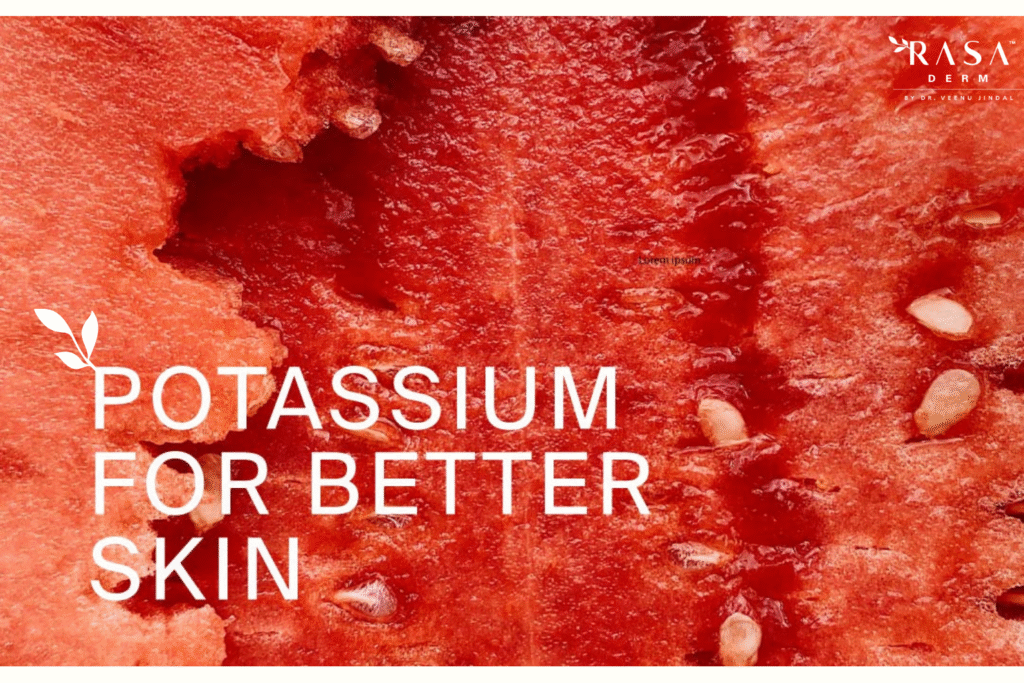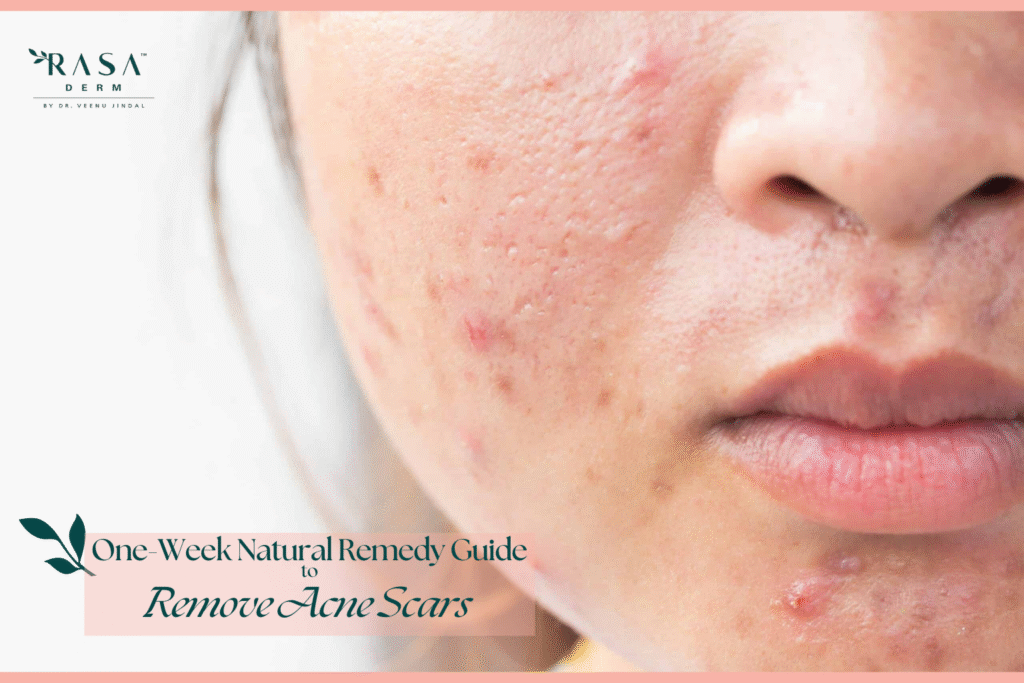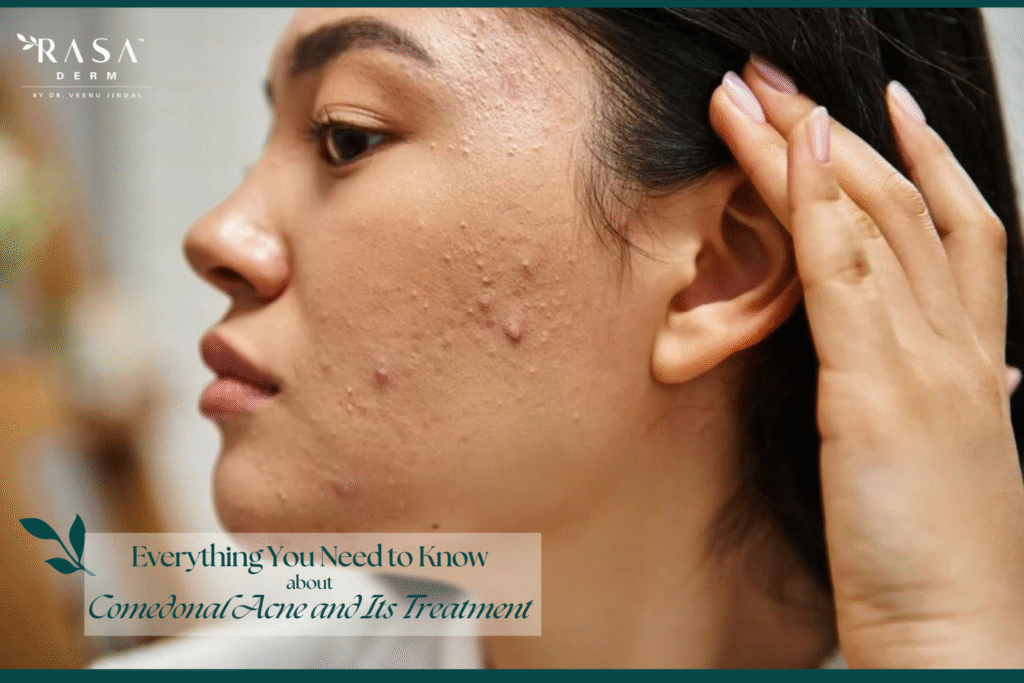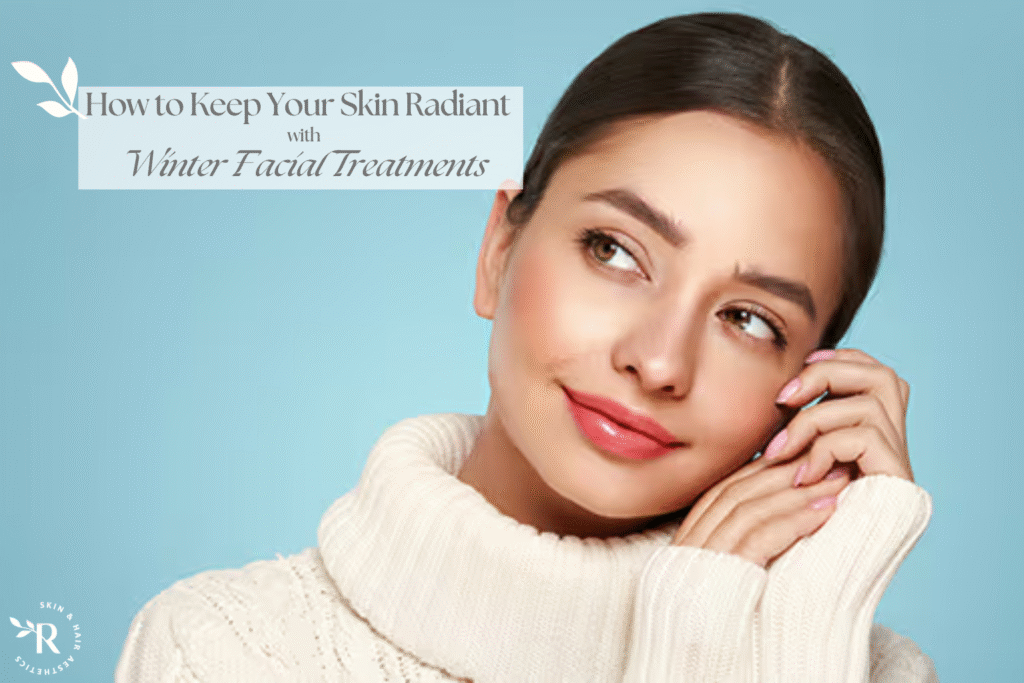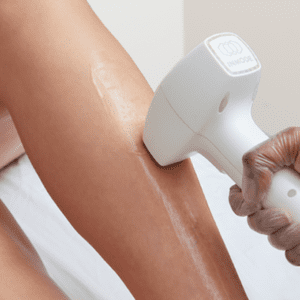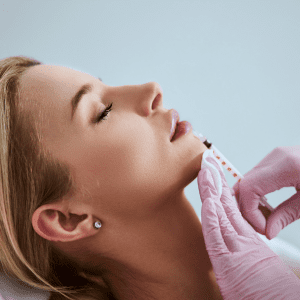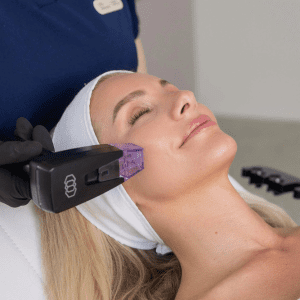Stress is indeed a major part of our everyday lives, though some of us may not often recognize its enormous effect on our face and skin. Our stress response is not only psychological but also physical, manifesting in our facial expressions, which is the part of us that always shows. We are well cognitively aware of this complex kinship between stress and skin health at our clinic, and understanding this relationship is the first step towards preventing its influence.
When stress exercises our bodies, they release a hormone cascade, such as cortisol, which can mess up the previous balance of our skin. This hormonal turmoil may then lead to different skin problems that include acne, inflammation, dryness and premature ageing. Unlike other parts of our body, the face, being the most exposed and expressive component of our body, is often the one to bear the brunt of these stress-induced changes.
In this blog, we will examine particulars on how stress affects your skin in the face, the signs to watch for, and the measures to take to safeguard and rejuvenate your skin during stressful periods. Rather than educate alone, our goal is to enlighten and equip you with knowledge and tactics for skin health and beauty management, even in the most stressful of times.

Understanding the Impact of Stress on the Face
We are aware that stress affects the face in many ways and may result in an imbalance in the skin’s health and appearance. Stress sees the body releasing cortisol, a hormone. This hormone increases the oil production from the sebaceous glands, which makes the face more susceptible to breakouts and acne. These hormonal fees could disrupt the skin’s natural balance, causing inflammation, redness, and aggravation of pre-existing conditions such as eczema or rosacea.
Also, stress can speed up the skin’s ageing process. High cortisol levels can break down collagen and elastin, which both contribute to keeping our skin firm and elastic. This deterioration can cause the development of fine lines, wrinkles and the loss of both puffiness and glow in the face.
Not only stress but also the skin’s barrier function can be affected, resulting in dehydration and a tired, dull complexion. With the compromised skin barrier, it is less able to keep moisture and protect from external irritants and pollution, and the face is more susceptible to external aggressions.
Besides stress, which can cause bad sleep and other undesirable habits like skipping the skin care routine or damaging the skin by rubbing and scratching the face,. These additional factors also make concealments for stress-related skin problems worse.
Understanding the role of stress on the face in skincare matters a lot in developing effective strategies. By detecting these signals and taking measures to reduce stress, for example, practicing relaxation methods, adhering to a regular skin care program, and seeking expert assistance if needed, we can assist in protecting our skin’s health and beauty, even under stressful circumstances.
Physical Reactions to Stress
Stress provokes a chain of physical reactions that are prevalent in the face. When stressed, the body releases cortisol, which is a stress hormone, and increases the production of oil glands on the face. This heightens the acne and breakout risk. This hormonal fluctuation throws the skin’s natural balance off, which may result in inflammation and redness, and acne could be worsened by this.
Also, the action of cortisol includes the degradation of collagen and elastin, two proteins offering skin elasticity and lustre. This process causes the breakdown of collagen, which results in wrinkles and creases; therefore, it makes the signs of ageing more obvious. Stress also affects the skin’s barrier function, which results in dehydration and laxity because the skin becomes unable to hold moisture and counteract pollutants.
The responses to stress that are physical help to highlight the importance of including stress management and self-care in the skincare routine. Practices that are simple, like proper breathing, physical workouts, and consuming the right kind of food, can be a great way of dealing with stress. In addition, they not only reduce stress but also make the skin stronger, thereby ensuring a constant healthy & vibrant appearance of the complexion under stressful life conditions as well.
Effects of Stress Hormones on Skin
The impact of stress hormones, mainly cortisol, on the skin is very profound and complex. With the increased cortisol production that happens when we’re stressed, our skin glands may produce excessive oil, and the face will be more susceptible to acne and other stress-related breakouts. The increased levels of this hormone upset the natural balance of the skin, causing inflammation, which in turn makes the preexisting conditions of eczema, psoriasis, or rosacea even worse.
Additionally, cortisol is one of the major factors contributing to the skin’s ageing. It degrades the collagen and elastin, the structural proteins that give us our full, firm and elastic skin. The outcome is an intensification of the ageing process that implies fine lines, wrinkles, and loss of skin elasticity and brightness.
What is more, stress hormones are responsible for the destruction of the skin barrier function, thus resulting in a dry, dull complexion. The decreased barrier then plays a less efficient role in holding moisture and defending the skin against external stressors, thus making the skin susceptible to damage.
The understanding of the stress hormones’ effect on the skin emphasises stress management in skincare. Methods like mindfulness, adequate rest and a balanced life not only eliminate stress levels but also reduce the visible consequences of the stress on the skin, resulting in better skin health.

Stress-Related Skin Conditions
One of the main features is the effect of stress hormones, particularly cortisol, on the skin. When we are under stress, the cortisol levels in the body go up. If they are too high, they can lead to the overproduction of oil in the hair glands of the face. This makes the face more vulnerable to acne and other types of stress breakouts. This hormonal surplus disturbs normal skin balance and can cause inflammation, thus exacerbating the condition of skin diseases like eczema, psoriasis, and rosacea.
Cortisol is one of the main components of the skin’s ageing process. It degrades these structural proteins, which are collagen and elastin, which make our skin firm, plump, and elastic. Consequences include remarkable wrinkles, fine lines, and a loss in the skin’s firmness and glow.
Moreover, stress hormones can affect the way the skin functions, allowing the passage of moisture and making thin skin dry and lacklustre. With a compromised barrier, water loss is no longer contained, and damaging external factors are more unprotected,thus becoming more susceptible to harm.
The understanding of how stress hormones affect the skin is a pointer to the necessity of stress management. Techniques including mindfulness, sufficient sleep, and stress management will not only provide a calming effect but also improve the visible signs of stress on the skin, delivering a healthier and more resistant complexion.
Skin Sensitivity and Stress
Stress can affect the skin with such severity that it can bring out the link between our emotional and physical health. When the body is under stress, the release of cortisol, the stress hormone, may undermine the functions of the skin barrier. This impairment of boundary impermeability results in an increased vulnerability to irritants and allergens that gives rise to hyperreactivity and hypersensitivity.
This compromised barrier is unable to retain moisture either, which results in dehydration and taut skin cells. It is common for the skin of individuals to become more sensitive to redness, itching and irritation, and for their skin conditions like eczema or rosacea to get worse and more frequent during stressful periods.
Furthermore, stress can damage the skin’s ability to heal itself, which extends the recovery time from irritation or injury and puts the skin more at risk from environmental factors such as pollution and extreme temperatures.
This finding of the link between stress and skin sensitivity points to the importance of having stress management as part of our skincare routines. Through mindfulness, adequate hydration, and using gentle, non-irritating skin care products, the skin can be soothed and protected when it is stressed and sensitive. It can then be maintained in good health and be strong enough even when one is under life’s pressures.
Visible Signs of Stress on the Face
Stress can topically demonstrate itself through the many signs that are the physical reflection of what we are going through internally. Among the most commonly seen signs of stress is acne or breakouts caused by stress, since cortisol, the stress hormone, stimulates oil production, which blocks the pores and leads to inflammation.
Another point to consider is that stress aggravates skin conditions such as eczema, psoriasis, and rosacea, which may cause more redness, irritation, and flare-ups. The skin can also become more dull and fatigued when there is reduced blood flow and oxygenation; stress is the leading cause of this.
One more thing to look out for as a sign of stress is the deepening of fine lines and wrinkles. Cortisol does not only break down collagen and elastin, which are the proteins that keep the skin elastic and wrinkle-free, but it also accelerates the ageing process.
Similarly, stress can result in puffiness and dark circles under the eyes because it impacts sleep quality and causes the body to hold more water. The complexion of the face may appear uneven with a pallid or ashy tone, the colour of which indicates the physiological stress response.
Knowing these manifested stress signs on the face is very important, as it helps you be proactive towards stress and the stress’s impact on skin health. Stress-management techniques and personalised skin-care regimens can be useful in preventing such outcomes and ensuring the youthfulness and durability of skin.

Managing Stress for Healthy Skin
Managing stress is not only important to the wellness of the mind but also to the maintenance of a healthy and glowing complexion. Stress-induced cortisol even negatively affects our complexion, causing breakouts, faster ageing, and more sensitivity. Hence, incorporating stress management into our daily lives is very important to maintain skin health.
Although some approaches are simple, they can be very important. Performing regular physical activity, for example, yoga or walking briskly, decreases cortisol hormone levels and improves blood circulation, making the skin look better. Mindful practices like meditation and deep breathing allow us to calm our minds, which is a major stress symptom for the skin.
Proper sleep is also one of the pillars of stress management and skincare. Quality sleep for 7-9 hours at night is essential for the skin to repair and rejuvenate, leading to the manifestation of less stress-related signs such as dullness and dark circles under the eyes.
Furthermore, a balanced diet containing antioxidants, omega-3 fatty acids and vitamins can strengthen the skin against oxidative damage caused by stress. Moisturizing with water and hydrating skincare products is essential for skin plumpness and good barrier function, which counters the effects of stress drying out.
Through the use of these stress management techniques, we can maintain our skin’s resilience and help it stay healthy and attractive through life’s adversities.
Effective Stress-Relief Techniques
The confrontation of stress requires that you use certain relief techniques that will not only benefit your mental health but also your skin as well. High levels of stress can show up visibly on your skin in the form of acne, dullness, and signs of ageing. This makes strategies to reduce stress very effective as a direct intervention.
- Exercise is an established stress reliever; for example, if you do yoga, run or even just take a brisk walk, your cortisol levels will be lowered and the blood flow improved, which will in turn boost skin health and radiance. Mindfulness practices such as meditation and deep breathing allow us to take short breaks, thereby minimising the physiological effects of stress that we often take on the face.
- One of the most powerful ways to fight stress is by participating in activities that give us joy, e.g., reading, painting, or going to nature. Meditation and exercises help us take our minds off problems and bring a sense of peace and joy.
- Having good-quality sleep is a requirement since this allows the body and the skin to repair and renew themselves overnight. Creating a calming nighttime routine can improve sleep quality, making sure that stress-related skin issues are lessened.
Implementing these stress-relief methods as part of your daily life, aside from helping boost your mental health, will also help keep your skin fresh and glowing, away from the visible signs of stress
Conclusion
Moreover, there is no doubt that the correlation between stress and its manifestation in our faces is obvious. Cortisol released in response to stress can initiate a variety of skin problems, such as acne, dullness, and the rapid manifestation of the signs of ageing. Becoming familiar with these visible signs is the first step to lessening the effects of stress on our skin. Practising stress-relieving techniques like regular exercise, mindfulness practices, hobbies, and quality sleep not only keeps our mental health balanced, but it also promotes the integrity and vitality of our skin.
Opting for a holistic stress management approach, involving routine skin care with soothing and nutritious products in addition, thwarts our skin against stress-related damage. By appreciating the deep bond between stress and skin health, we can develop preventive measures for our natural beauty and glow while life’s inevitable stressors surround us. The important thing is that stress management is not only about feeling good; it also concerns the way we look and the peacefulness of our faces, which makes our faces shine with inner beauty and harmony.



